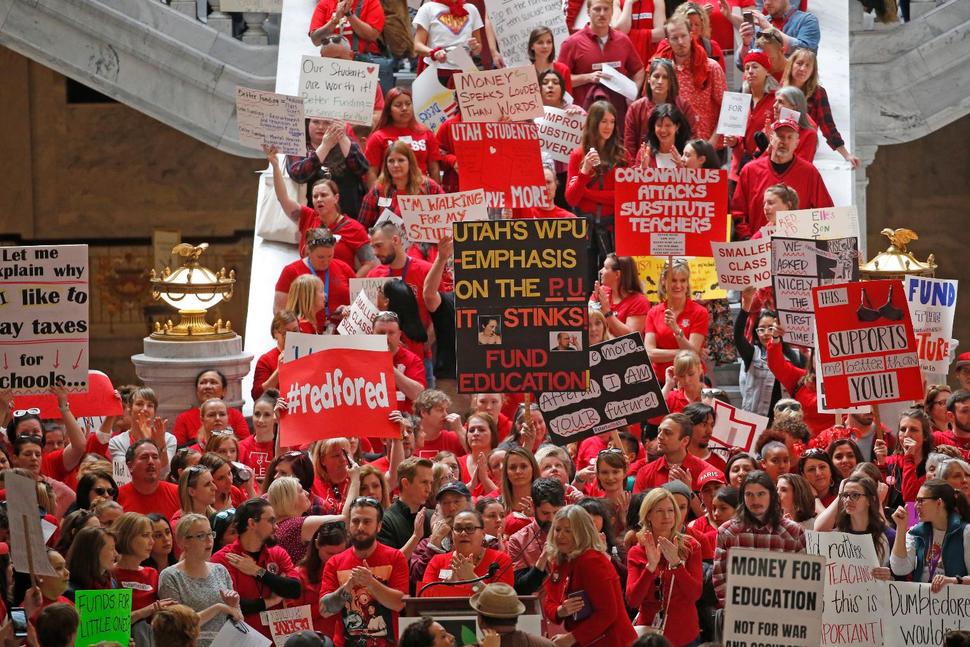
In this Feb. 28, 2020, photo, teachers from the Salt Lake City School District are shown during a rally at the Utah State Capitol. Income tax money can only be used for education in Utah, but lawmakers are now introducing a complex proposal to change that in hopes of shoring up the state’s shrinking sales-tax base. The proposal announced Wednesday, March 4, 2020, by legislative leaders would allow income tax to be used for other needs of children and the disabled as well as education, the Deseret News reported. (AP Photo/Rick Bowmer)
SALT LAKE CITY (AP) — Income tax money can only be used for education in Utah, but lawmakers are now advancing a complex proposal to change that in hopes of shoring up the state’s faltering sales-tax base.
The proposal approved by a Senate committee Thursday would allow income tax to be used for other needs of children and the disabled as well as education, the Deseret News reported.
Lawmakers have called the plan their “last option” after they were forced to repeal a deeply unpopular plan to prop up the sales tax base by raising taxes on food. A previous proposal to tax services, meanwhile, was nixed after business community opposition emerged.
“We have one to two years left after this year before we hit the fiscal cliff,” said Republican House Majority Whip Mike Schultz. “We heard loud and clear the public does not like taxes on services. So then we went and tried the sales tax on food. We heard loud and clear that does not fly.”
Convincing voters to change the way education is funded could be tricky: Utah often ranks among the lowest states in per-pupil spending on education. And last week hundreds of teachers marched on the state capitol to demand more money for education. The state teacher’s union is opposed passing the new proposal during the final days of the session, with executive director Brad Bartels saying it would be a “generation change in education funding” an deserves more discussion.
The plan would require a constitutional amendment, so it must first pass the Legislature with a two-thirds majority and then go before the voters in November.
Lawmakers on Wednesday worked to head off potential criticism, pointing to a part of the plan setting up a $100 million education rainy day fund. The proposal would bring more stability to education funding, since income tax typically dips during an economic recession, leaders argued.
“No one’s ever said we do not want to fund education,” said Republican House Majority Leader Francis Gibson. “This is really about shoring up education funding.”
The plan would allow income tax money to be used for things like the Children’s Health Insurance Program, which provides coverage to children whose families are low income but earn too much to qualify for Medicaid, said Republican Senate President Stuart Adams.
It would also include legal commitments requiring lawmakers to provide funding when school populations increase. School districts could also have more flexibility in how they use property tax money, Adams said.
Democratic Rep. Brian King questioned Republican lawmakers’ unveiling of the complicated plan with days left in the legislative session. “Not cool,” he said.

